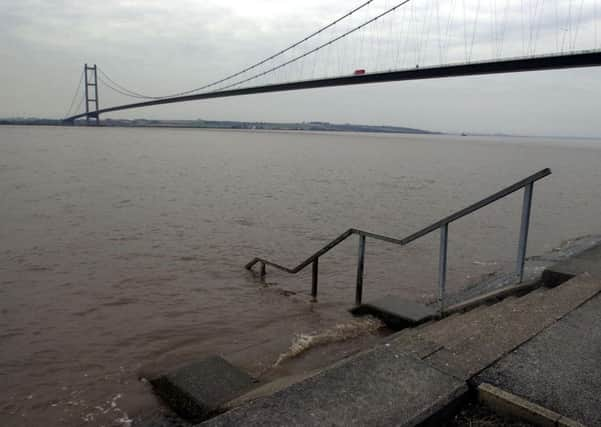Tide turns in flood battle: The week that was June 13 to 20, 2002.


With sea levels rising by 6mm a year, levels in 50 years were expected to be 300mm – nearly a foot – higher, leaving many existing flood barriers unable to cope.
While most of the area’s industrialised and urban areas would continue to be protected by existing defences, in some zones river defences were to be set back, creating new inter-tidal zones, said the Environment Agency. It had written to farmers in 12 areas saying it wanted to acquire around 2,000 hectares of land securing half of it for set-back. A pilot area at Thorngumbald was already being constructed.
Advertisement
Hide AdAdvertisement
Hide AdPlans for a 6,000-strong reaction force of armed reservists to aid civil authorities in the event of a major terrorist attack were unveiled by Defence Secretary Geoff Hoon, who said the force could play an important role in meeting the challenge posed by international terrorism following the September 11 attacks.
However the Tories warned that Britain was already lagging behind the US in strengthening its homeland security and it was essential that the new force was backed by additional money.
The Government’s new reforms of asylum and immigration laws cleared the Commons, with MPs backing the third reading of the Nationality, Immigration and Asylum Bill by 362 votes to 74. The Bill now faced scrutiny by the Lords, after a number of contentious clauses were pushed through in spite of cross-party protests. A potential backbench revolt had been averted when plans to educate asylum seekers’ children in new accommodation centres failed to materialise.
There was an outcry from health charities when doctors were told that victims of the leading cause of blindness in Britain should lose the sight in one eye before being given effective treatment on the NHS.
Advertisement
Hide AdAdvertisement
Hide AdThe National Institute for Health and Care Excellence, which vetted new treatments in England and Wales, was attacked by people suffering from age-related macular degeneration (AMD) and charities like AMD Alliance UK, whose chairman Steve Winyard said: “This recommendation is outrageous. If upheld, Nice is burdening doctors with the task of telling up to 1,500 people every year that they cannot receive treatment despite there being an effective therapy available.”
The controversy surrounded photo-dynamic therapy (PTD), which was able to arrest the onset of ‘wet’ AMD – the principle cause of irreversible sight loss in Britain. Access to the drug was already patchy, with some health authorities more willing to pay for it than others.
Meanwhile, a blind man with electronic eyes proved he could navigate a car around an obstacle course this week. The ‘miracle’ was possible thanks to cameras mounted on spectacle frames which fed a micro-computer wired into the brain, scientists heard at the conference of the American Society for Artificial Internal Organs in New York.
Rick and Ilsa, played by Humphrey Bogart and Ingrid Bergman in evergreen Hollywood movie Casablanca, earned the accolade of best American screen romance. The rest of the top 10 film romances, judged by the American Film Institute, included Gone With The Wind, West Side Story, Roman Holiday and An Affair to Remember.